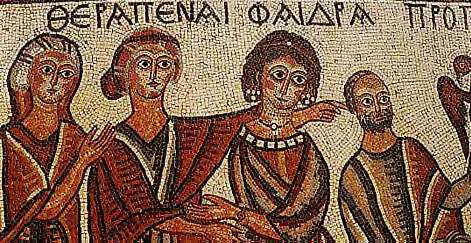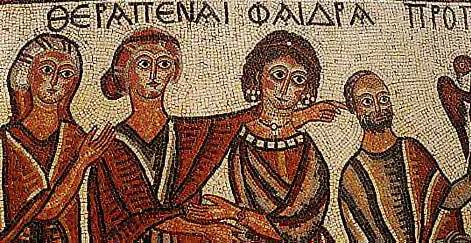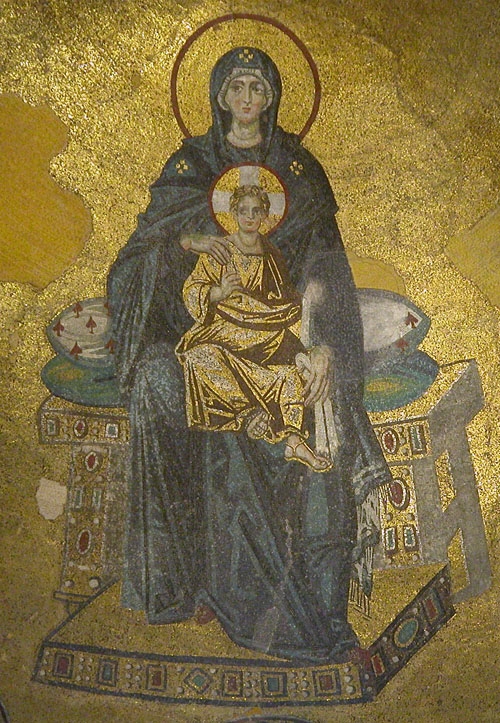By Juan Cole | (Informed Comment) | – –
Given the alarming rise of white nationalism in the United States and the ways in which it is often entangled with Christian nationalism, it is worthwhile remembering whose birth, exactly, is being commemorated today.
The association of Christianity with whiteness is relatively new in history, as is the whole idea of a “white” race identified with Europe. I’ve pointed out that Benjamin Franklin saw whiteness in his own day as being an attribute solely of the British, so that Germans, e.g., were not white– in part because he thought them “swarthy” and in part because they lived under despotism. And, no, Santa Claus was not ‘white,‘ either.
Likely the rise and consolidation of the Dutch and British Empires in the seventeenth through twentieth centuries contributed to the meme of “whiteness” and “Christianity,” both seen by some in the 19th century as markers of civilizational superiority. (The actual reasons for which the British were able to loot India, Malaya and Kenya, and the Dutch to loot what is now Indonesia, had nothing to do with either ‘whiteness’ or Christianity. There are, as it turns out, no meaningful biological races, since homo sapiens sapiens is such a young species, roughly 150,000 years old).
So here are some reasons for which Jesus was not white.
1. “Whiteness” does not actually depend on skin color but on status. Hence, Ben Franklin’s conviction that Germans were not white. But the racist conception of whiteness obviously does have something to do with fair skin color (it is produced by living in a region with low ultra violet rays, so that embryos have trouble getting enough to make needed vitamin D; nature selects very light mother’s skin in, say, Scandinavia). Jesus was born and lived in what is now Palestine, Egypt and Israel, where ultra violet rays are fairly intense, and so olive skin is selected for to keep them from damaging the embryo). This is what artists of the sixth century in the province of Roman Arabia (today’s Jordan) thought people who lived in Mediterranean lands looked like:
I don’t think they could have gotten served at a Woolworth’s deli counter in the American South in circa 1960. I also don’t think North Carolina’s GOP legislators would let them vote very easily nowadays.
2. Whiteness is in part about belonging to the imperial power, which dominates and dictates to other peoples. Neo-Nazi mass murderer Dylann Roof, for instance, particularly minded the end of white colonial domination of Zimbabwe, which they had called Rhodesia. The first-century equivalent of the black Shona, the largest ethnic group in Rhodesia, in Roman Palestine were the Jews. Jesus was from the colonized and oppressed people, not from the dominant imperial elite– that would have been Pontius Pilate, who ordered him crucified as a trouble-maker. Pontius Pilate was the equivalent of “white” in the Roman empire.
3. Jesus as a toddler was a Syrian refugee with Mary and Joseph in Egypt. He lacked the privilege and stability that mark whiteness in today’s world. It is the Somalis and Syrians and Afghans who are the refugees.
4. Whiteness is about property-owning, especially landed property, even just a domicile. Jesus, and before him Joseph, was a builder or carpenter, working with his hands as an artisan, and there is no reason to think that his family had much property. Some 40 years after Jesus’ death at the hands of the Romans, they put down a Jewish revolt and in the aftermath confiscated all Jewish property and forbade Jews to own land in Palestine. Jesus just wasn’t from the privileged stratum.
5. Whiteness is about respectability. Jesus had no use for conventional status. Mark 2:15-17 says,
“15 And as he sat at dinner in Levi’s house, many tax collectors and sinners were also sitting with Jesus and his disciples—for there were many who followed him. 16 When the scribes of the Pharisees saw that he was eating with sinners and tax collectors, they said to his disciples, “Why does he eat with tax collectors and sinners?” 17 When Jesus heard this, he said to them, “Those who are well have no need of a physician, but those who are sick; I have come to call not the righteous but sinners.”
It is the sinners to whom Jesus ministered, not the self-righteous. If he did come back, he would not recognize many in the US Religious Right or the billionaire ideologues as his followers, since they are puffed up like the Pharisees. It would be the non-church going, the humble, with whom Jesus would prefer to hang.
Luke 18:9-14 says
“9 He also told this parable to some who trusted in themselves that they were righteous and regarded others with contempt: 10 “Two men went up to the temple to pray, one a Pharisee and the other a tax collector. 11 The Pharisee, standing by himself, was praying thus, ‘God, I thank you that I am not like other people: thieves, rogues, adulterers, or even like this tax collector. 12 I fast twice a week; I give a tenth of all my income.’ 13 But the tax collector, standing far off, would not even look up to heaven, but was beating his breast and saying, ‘God, be merciful to me, a sinner!’ 14 I tell you, this man went down to his home justified rather than the other; for all who exalt themselves will be humbled, but all who humble themselves will be exalted.”
Whiteness has a mean streak, putting down the poor, the racial Other, the immigrant, the refugee. It is insecure. Even when it isn’t organizing attacks on them, it is hardhearted toward the injustices visited upon other groups. In contrast, Jesus (Matthew 25) is known above all for compassion and humility:
““31 “When the Son of Man comes in his glory, and all the angels with him, then he will sit on the throne of his glory. 32All the nations will be gathered before him, and he will separate people one from another as a shepherd separates the sheep from the goats, 33 and he will put the sheep at his right hand and the goats at the left. 34 Then the king will say to those at his right hand, ‘Come, you that are blessed by my Father, inherit the kingdom prepared for you from the foundation of the world; 35 for I was hungry and you gave me food, I was thirsty and you gave me something to drink, I was a stranger and you welcomed me, 36 I was naked and you gave me clothing, I was sick and you took care of me, I was in prison and you visited me.’ 37 Then the righteous will answer him, ‘Lord, when was it that we saw you hungry and gave you food, or thirsty and gave you something to drink? 38 And when was it that we saw you a stranger and welcomed you, or naked and gave you clothing? 39 And when was it that we saw you sick or in prison and visited you?’ 40 And the king will answer them, ‘Truly I tell you, just as you did it to one of the least of these who are members of my family, you did it to me.’ ”





 © 2025 All Rights Reserved
© 2025 All Rights Reserved